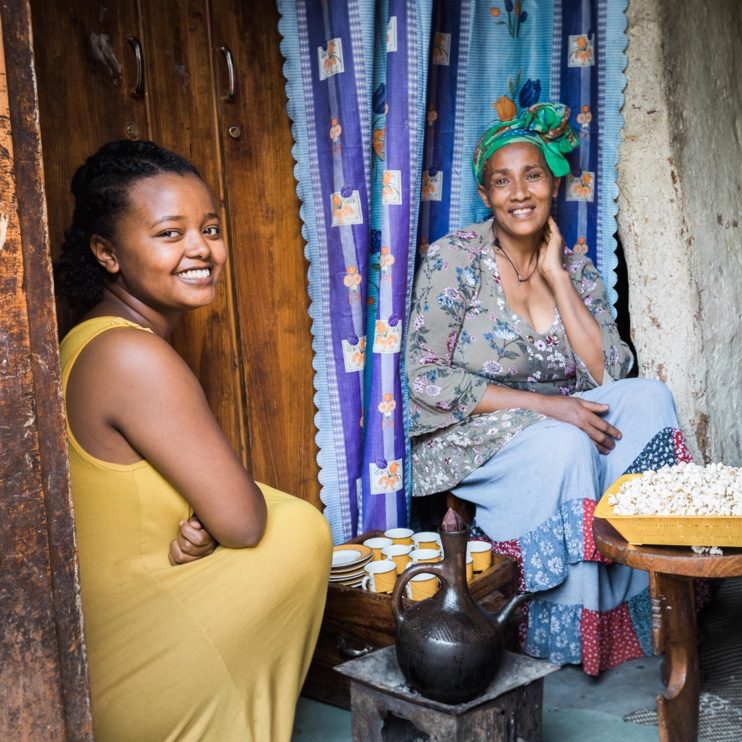
Coffee knows no international boundaries. It is consumed all over the world but in Ethiopia it is far more than a favorite beverage of choice. It is at the epicenter of the social culture. In Ethiopia, this rich, full-bodied beverage is not a drive through experience, but a focal point for community and communication. The time-honored coffee ceremony is a formalized ritual that engages all the senses. The aroma of coffee beans, hand-roasted over an open fire, blend with the incense that are a traditional part of the ceremony. They blend with the scent of the fresh grass that is spread over the floor as part of the ancient rite. Wearing a traditional habesha dress, the “barista” sits on a low stool, grinding the roasted beans with a small pestle. The entire process is purposely slow and methodical, with no hint of hurry. It is a time to relax and enjoy the sights, smells, and conversation. The ceremony can last for hours because no one is in a hurry. There are usually three cups of coffee served, with the last cup labeled “Baraka,” which means “cup of blessing,” and it is the reason most people remain for the entire ceremony.
“Trust in him at all times, O people; pour out your heart before him; God is a refuge for us.”
It is a little-known fact that Ethiopia was the birthplace of this highly popular beverage. According to tradition, sometime in the 9th-Century, a goat farmer named Kaldi, was out in the fields grazing his goats. The goats discovered a plant that bore small red berries. As they began to eat the berries, the goats became very active. They jumped in the air, kicking their hooves, and prancing around the field.
Thinking the berries might have magical qualities, Kaldi took some to a local priest to determine the nature of their strange effect on the goats. The priest, deeming them worthless, threw them into a nearby fire. But soon, a wonderful and tantalizing aroma caught the attention of the two men. The priest pulled the blackened beans from the fire and placed them in some boiling water, inadvertently producing the very first cup of “buna,” the Amharic name for coffee. As a result of Kaldi’s culinary discovery, you will find Ethiopia is filled with coffee shops bearing signs with the name “Kaldis,” but not Starbucks.
The coffee ceremony is just one of many unique cultural experiences that illustrate the warm and inviting culture of Ethiopia. In her book, Foreign to Familiar, Sarah A. Lanier describes Ethiopia as a “warm culture.” By this she means that it is a culture that focuses on people rather than time. They are a people of warmth and community who prefer long conversations over the hectic lifestyle of most modern cultures. A common saying among Ethiopians is, “Here, we have no watches, but plenty of time. But in the west, they have watches and no time.”
With this mantra in mind, Adera Foundation has dedicated itself to a long-term strategy for our work in Ethiopia. True change doesn’t happen overnight. It requires dedication and determination, coupled with the desire to truly know and love people, and that takes time. Like the coffee ceremony, our work is designed to offer a place where others feel welcomed and appreciated. We are in no hurry to solve all the world’s problems, but we are determined to pour out a “cup of blessing” on all those the Father brings to our table.






